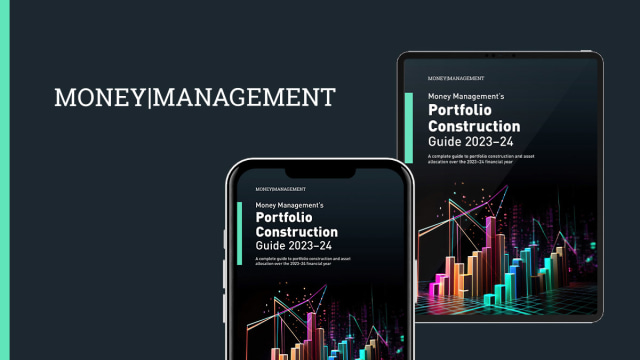An introduction to investing in Private Markets

As featured in the Money Management Portfolio Construction Guide 2023
___________
Investing in private markets can deliver higher returns relative to other asset classes, whilst also delivering an effective hedge against market volatility. ‘Private markets’ includes private equity investments, as well as the provision of private credit to businesses seeking alternative financing solutions.
Pengana Capital Group is among a few Australian fund managers delivering private market investment solutions, and the manager behind Australia’s only listed globally diversified true private equity fund. Russel Pillemer, co-founder and CEO of Pengana, says these private equity offerings are particularly attractive to investors amid the current market uncertainty.
“What we try and do is deliver unique and superior products that will enhance overall portfolio construction for investors, both in terms of higher returns and reduced volatility,” Mr Pillemer says. “We’re constantly on the lookout for new strategies that can help our clients achieve their financial objectives.”
Private Equity
Mr Pillemer describes private equity – an off-market purchase of stakes in private businesses – as a “fundamental part” of constructing any investment portfolio.
“Private equity has historically delivered higher returns, and with a reduced level of risk compared to listed equities,” he explains. “You don’t have daily fluctuations in the value of your portfolio based upon unrelated market sentiment on any particular day.” The lack of short-term public pressure on private businesses allows for long-term investment orientation. Private equity managers are able to capture the illiquidity premium associated with such investments, and operationalise long-term value creation strategies.
The most compelling investments are often made with sector specialists who have expertise in niche industries requiring deep regulatory, scientific, financial, or political insight. Doing so during times of dislocation, coupled with a focus on resilient and defensive exposures has historically led to strong outperformance.
The expectation of rising defaults in the current rising rate and slower growth environment also provides the potential to generate less correlated return streams, with private equity managers seeking to capitalise on dislocations, inflection points, misunderstood assets, and other complex situations where intrinsic value has been misread.
“In these types of periods, opportunities arise – acquisition opportunities, restructuring opportunities, market growth opportunities…” Mr Pillemer observes.
“You can imagine that if you’re a private company that’s got a big balance sheet backed by a big private equity player that you don’t necessarily have to worry about equity markets. You’re much freer in your abilities to go out there and make acquisitions or attack a new growth market”, Mr Pillemer observes.
“You find in periods of uncertainty that private equity backed firms have historically done better than they have in regular times – we think these are special times for private equity funds.”
Private Equity for Everyday Investors
Gaining exposure to private equity is, however, typically the domain of institutional and ultra-high-net-worth investors, often demanding extensive operational and investment due diligence, large minimum commitments (sometimes US$10–20 million per investment), long-term illiquidity of up to 10-years, and complex ongoing capital management relating to capital calls, distributions, and re-investments.
Most retail private equity funds are often unlisted and may provide investors access to capital on a monthly to quarterly basis.
In response, Pengana has developed a solution which pools capital to make multiple large commitments to underlying private equity funds and investments in order to deliver a well-diversified portfolio to retail investors. This approach also solves the complexity of evaluating opportunities, managing cash flows, and the traditional liquidity constraints.
Pengana’s Private Equity Trust is listed on the ASX under the ticker PE1. The fund’s listed structure has allowed investors, since its 2019 inception, to gain exposure to truly global private equity with daily access to their capital.
“We created a structure that has allowed investors to invest in really high-quality global private equity, do it in a way in which they could get in and out of it, and have the opportunity for liquidity.” Mr Pillemer continues, “this is despite the underlying assets being illiquid.”
PE1 currently has exposure to over 500 underlying private companies including names such as Lineage Logistics, Gainwell, SpaceX, Uber Freight, and Peraton. Since its inception to 31 May 2023, PE1 has generated returns of 11.6 per cent per annum, and also targets a cash distribution yield of 4%p.a. This is all without compromising the type of deals in the underlying portfolio, which mirrors those typically made by large institutions, endowment funds, and ultra-high-net-worth family offices.
With this innovation in private equity investment options, Mr Pillemer adds, retail investors can now easily increase their exposure to the 10-20 percent allocation typically seen amongst institutional investors.
Private Credit
Another lucrative component of private markets is investment in the fast-growing provision of credit to businesses looking for alternative sources of debt.
Globally, the private credit industry has grown exponentially, nearly tripling in value over the last 10 years to a US$1.2 trillion market size. While banks continue to dominate the lending space in Australia, global markets tell a different story.
According to Mr Pillemer, this presents private credit providers with an opportunity to fill the growing void left by banks. This, in turn, delivers stronger returns for investors, given private credit is typically lent at higher interest rates.
“On a risk-return basis, this is another fantastic place to be investing,” Mr Pillemer observes. “So, if you find a private credit manager who’s got the expertise to construct their loans well with the downside protection rights, and who can charge significantly higher rates than the banks, then you get this fantastic risk-return trade off.”
Pengana is set to launch private credit offerings before the end of 2023, having recently announced a highly credentialed management team for their private credit business, as well as a $200 million seed investment from Washington H. Soul Pattinson (WHSP).
“We think that this is something, once again, that will be significant for our investors in terms of their portfolio construction.”
Pengana is investing in a diverse portfolio of private credit fund managers with the aim of generating “double-digit” net returns of up to 11–12 percent in the current interest rate environment. The prospective offering is expected to include investment options for both wholesale and retail investors.
The fund manager is also working to remove currency exchange risks by hedging transactions back to Australian dollars. “Most investors – almost all that we speak to – want to avoid currency risk and we’ve been able to figure out how to do that,” Mr Pillemer says.
“It’s been quite a complex and difficult thing to do, but we’ve been able to solve it and we think our investors will really appreciate it.”
Mr Pillemer says based on academic literature; private credit allocation could represent between 10-25 percent of a diversified investment portfolio. When accounting for private equity exposure, given the sheer magnitude of private markets in comparison to public markets, a mathematical approach suggests that most Australian investors would be hugely underweight private market allocations due to the historical barriers of accessing this attractive space.
Pengana’s investment in private market products over the last few years is aligned with the group’s aim of offering differentiated, value-additive investment products to its investors.
“I think private market investments should be a mainstream part of portfolios. If you looked at private market investments relative to listed equities or bonds based on where we are in the economic cycle, then the former is certainly something that should hold its own in portfolios.”
“I’d encourage investors to look at it and speak to their financial advisors and try to figure out how they’re able to do this.”


